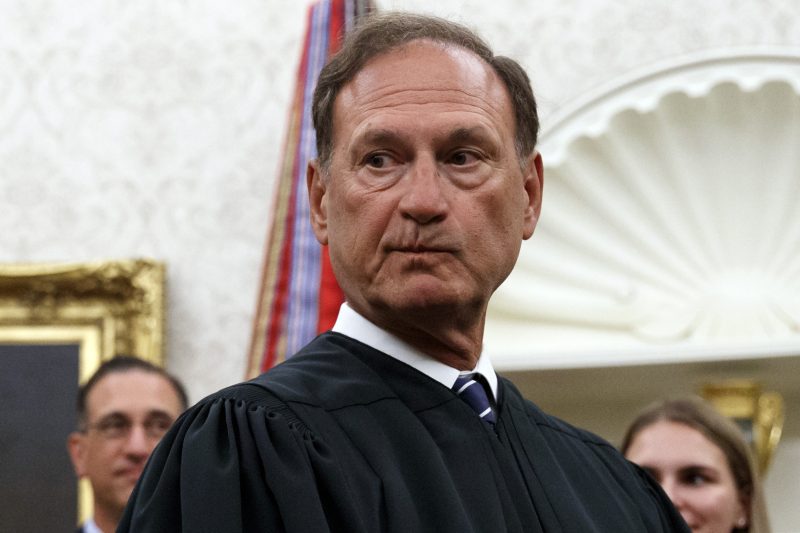In a recent controversial decision that has sparked debates among legal scholars and commentators, Supreme Court Justice Samuel Alito has ruled that he himself is sufficiently impartial to hear cases involving matters that he has previously expressed opinions on. This ruling has raised questions about judicial ethics, conflict of interest, and the ability of justices to remain neutral and unbiased.
The principle of impartiality is a cornerstone of the judicial system, ensuring that every individual is entitled to a fair and unbiased hearing of their case. Judges and justices are expected to set aside their personal opinions and beliefs in order to apply the law objectively. However, Justice Alito’s decision to declare his own impartiality in cases where he has previously taken a stance has called into question the very foundation of judicial integrity.
One of the key concerns raised by this decision is the potential for bias. By allowing Justice Alito to determine his own impartiality, there is a risk that personal biases and preconceived notions could influence the outcome of cases. This goes against the fundamental idea that justice should be blind and impartial, with decisions based solely on the facts and the law.
Moreover, Justice Alito’s ruling has also prompted discussions about the accountability of judges and justices. While they are expected to be independent and free from outside influences, they are not immune to the court of public opinion. By making a decision that some view as self-serving, Justice Alito has opened himself up to criticism and scrutiny, undermining the public’s trust in the impartiality of the judiciary.
Furthermore, this decision has highlighted the need for clearer guidelines and standards for judicial conduct. While judges and justices are bound by codes of ethics, there is often ambiguity surrounding issues of impartiality and conflicts of interest. Without clear rules in place, there is a risk that judges may act in their own self-interest rather than in the interest of justice.
In conclusion, Justice Alito’s ruling that he is sufficiently impartial to hear cases involving his own opinions raises important questions about the role of judges and justices in upholding the principles of impartiality and neutrality. It serves as a reminder of the need for a robust framework of judicial ethics and accountability to ensure that the judiciary remains independent, impartial, and above reproach.


























